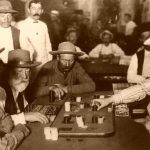Loot boxes in video games should be controlled and regulated as gambling – that’s the official advice from a new report by a House of Commons committee. The proposal would ban anyone under 18 from being able to purchase them.
The report on on immersive and addictive technologies was published by the digital, culture, media and sport (DCMS) committee on Thursday after months of consulting with technology and gaming companies. It argues that loot boxes should be regulated as games of chance under the Gambling Act of 2005.
What are loot boxes?
Loot boxes offer players randomised prizes within a video game – for example a new playable character, item or weapon. They can be purchased with real money, and the most desirable items are often rare. Most game companies refuse to publish the actual odds of winning the best prizes.
The recent Star Wars game Star Wars Battlefront II was criticised by players and critics alike for hiding the best characters in Loot Boxes. FIFA Ultimate Team (which has a family-friendly PEGI 3 age rating) also features loot boxes in the form of player packs – again, the best players are agonisingly rare, encouraging players to purchase multiple packs. One particular gamer admitted to spending £1,000 a year trying to win better players for his FIFA team.
The reason loot boxes aren’t currently classified as gambling is because the prizes are considered to have no monetary value. However the report heard evidence of players selling prizes for real cash, and argues that they can cause problem gambling.
The proposed legislation would only cover games that require real money to purchase loot boxes – games that reward a player’s progress with random prizes without requiring payment would not be affected.
Exposing children to potential harm
Damian Collins, the chair of the committee, said: “Loot boxes are particularly lucrative for games companies but come at a high cost, particularly for problem gamblers, while exposing children to potential harm. Buying a loot box is playing a game of chance and it is high time the gambling laws caught up. We challenge the government to explain why loot boxes should be exempt from the Gambling Act.”
The report quoted evidence from cognitive psychologists that loot boxes and similar features are “designed to exploit potent psychological mechanisms associated with […] gambling-like behaviours” – although many of the experts they consulted were unable to draw solid conclusions, as the gaming industry has not published sufficient data on the subject.
Industry response
Loot boxes are already classed as gambling in certain markets – such as Belgium, where publishers have taken games off sale rather than attempting to obtain a gambling license.
The games industry body Ukie released a statement saying “We will review these recommendations with utmost seriousness and consult with the industry on how we demonstrate further our commitment to player safety – especially concerning minors and vulnerable people.”






